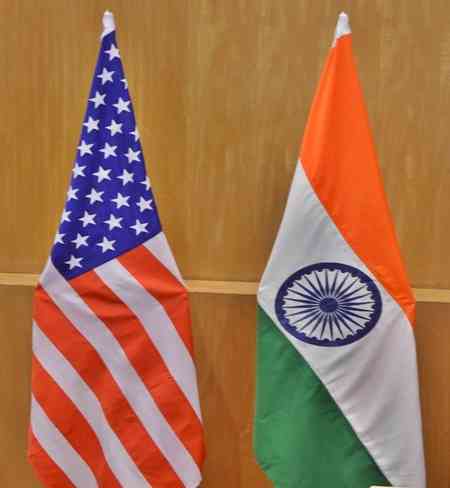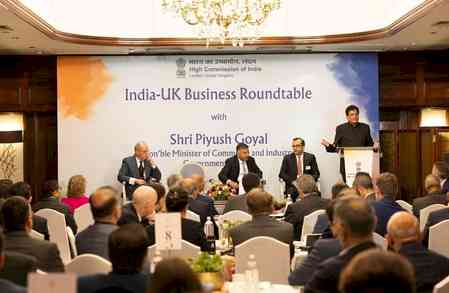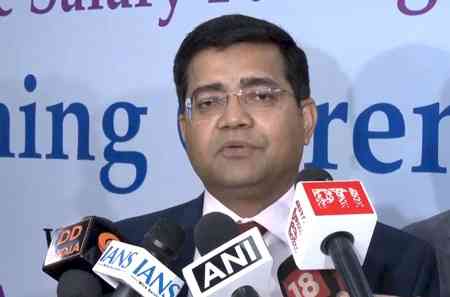Indian bicycle industry needs support from government: AITF
Writes to Prime Minister Narendra Modi

Ludhiana: All Industries and Trade Forum (AITF) national president Badish Jindal has sent a communication to Prime Minister Narendra Modi with regard to bicycle exports stating that, India has plunged to 25th rank, therefore industry needs support from the government.
He stated that India being one of the developing countries with a huge population of 135 crores, having 70% of the rural economy and a vast number of population below poverty line should know the importance of Bicycle for improving the data of its GDP.
The data states that 97% of the Chinese household have a bicycle and in India it’s merely 45% which comes around 11 crore houses. The data is now so low because of the desire of buying a bicycle but it is low due to the financial inability to purchase a bicycle.
It’s a hard fact that the 70 years old Bicycle industry in India still manufacturing 16 million bicycles and the sales of two wheeler automobiles is more than 22 million in the country. One of the main reasons of this gap is that it is more convenient to buy a motorcycle due to bank finance.
During last year’s many states came forward to procure bicycle for the students and that impressingly increased the literacy rate in rural and urban India.
The poor workers residing in villages are still dependent on public vehicles for their transportation to reach to work places and surely the bicycles can reduce their travel time and help them to be more punctual for their jobs beside this this can prove to be more financial viable for these poor workers. Similarly many rural vegetable and milk producers in India are depends upon middlemen to procure their production, whereas they can get a better price of their products if they transport it to the cities.
So the government must bring such subsidized schemes for rural categories to fulfill the dreams of these poor workers and farmers, beside this the banks should be ordered to bring the micro finance schemes for the buyers of bicycles in India.
Bicycle is basically a cottage industry which is giving the employment to around 2 million people directly and indirectly in the country.
The main support requires by this sector is handholding technology support, curb on cheap bicycle imports, time barred GST refunds, cheap capital loans and working capital. Mandatory bicycle tracks for safety of cyclists as two wheelers are considered to be most unsafe in India. Curb on fraudulent activities such as number two sales or cheap assembling of bicycles.
Jindal state that India is losing its place in world bicycle exports recently after the Chinese issue the government is keen to help the Industries to make them Atam Nirbhar with a target to achieve the performance in domestic and international trade.
But the fact of Bicycle Industry is that the country having the second largest manufacturers of Bicycle & Bicycle parts is on the 25th rank in world bicycle exports. In the total world export of 66750 crores the India’s export share is merely 348 crores which is just around half a percent of worlds export.
It is rather much shameful that the countries such as Cambodia is having bicycle export of 3622 crores and even the Bangladesh is having an export of 690 crores which is almost double than the export of India.
The China is leading the tally with 32.4% share in world export by exporting worth 21700 Crore Rs and Taiwan is second in the tally with and export of 10500 Crores of Bicycle exports. The very small European countries are exporting 24300 crores of bicycles to other countries.
In the year 2010 India’s export share was 10% in the world export with an export of around 1500 crores but it goes on declining with the increase of exports by many new countries. Even during 2017-18 and 2018-19 India’s bicycle export declined by .04%. The main reason behind this decline is that we are still dependent upon small countries like Taiwan, Cambodia and Vietnam for our high end bicycle parts. Indian manufacturers are still using the year old steel technologies whereas the world is manufacturing the carbon or alloy bikes.
“So, to bring back the Bicycle Industry on its wheels, the government requires forming a comprehensive plan which must include the technology, finance and export incentives”, suggested Jindal.


 cityairnews
cityairnews 










